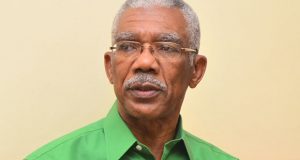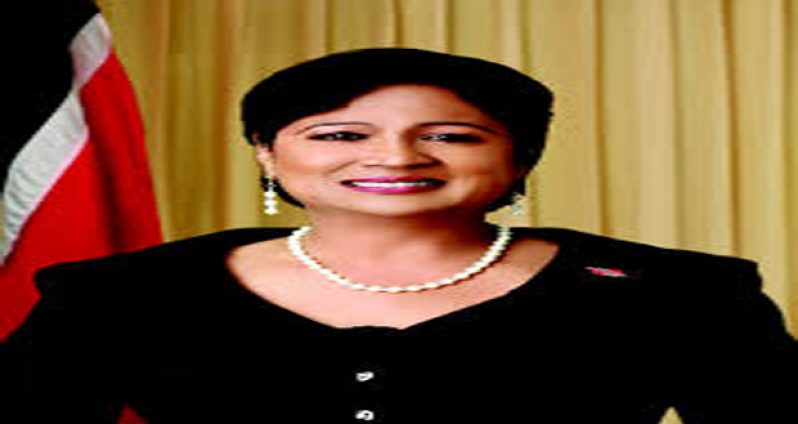PRESIDENT David Granger has contended that the voting out of power of the People’s Partnership (PP) Government in Trinidad and Tobago does not necessarily reflect a failure of such coalitions.According to the President, the focus of the election was not on the coalition government, but on the two major contenders: then Prime Minister Kamla Persad-Bissessar and Opposition Leader Dr Keith Rowley.

The A Partnership for National Unity+Alliance For Change (APNU+AFC) is a coalition government. The coalition consists of the Alliance For Change (AFC) the People’s National Congress Reform (PNCR), the Working People’s Alliance (WPA), the Guyana Action Party (GAP), the Justice For All Party (JPAP), and the National Front Alliance (NFA).
President Granger told the Guyana Chronicle and Stabroek News in an interview after the recording of the programme Public Interest at the Ministry of the Presidency that without an analysis of the Trinidad and Tobago Elections, he would not jump to a conclusion that the People’s Partnership loss at the polls is an ominous sign for the APNU+AFC coalition.
But he pointed out that the election followed the pattern of the American Presidential campaign where the focus was on the two major candidates, with hardly any attention on the other contesting parties.
President Granger told the two publications that people campaign primarily to elect a President, and this was what happened in Trinidad and Tobago.
In Guyana, he said things are not far different.
“People tend to focus on the personalities rather than the coalition. The average voter will vote for coalition, Granger, and if Granger is a bad man then the coalition will fail.”
The loss for the People’s Partnership Government as such, he said, cannot be regarded as a defeat for the coalition, but more of a contest between two personalities, and in the end, one of them won the elections.
The Dr Keith Rowley led People’s National Movement captured 23 of the 41 constituencies to be declared winner of the 2015 General Election.
The Trinidad Express reported that the PNM improved on their 2010 showing when they won 12 seats to form the opposition.
The People’s Partnership who had 29 of the 41 seats and formed the government over the past five years won 18 seats and will now be on the Opposition bench.
The Independent Liberal Party led by Jack Warner did not make an impression with the voting public and failed to capture a single seat, the Trinidad Express reported.
The victor for Dr Keith Rowley of the People’s National Movement (PNP) has created a novel coincidence in CARICOM. Along with the PNP, the People’s National Party of Jamaica, the Democratic Labour Party and President David Granger of the People’s National Congress (PNC) are all in power at the same time.
These parties have produced the founding leaders of CARICOM.
And for President Granger, the alignment of the four is a signal for the rebirth of the Caribbean integration movement.
On assuming office, the first diplomat the President met was CARICOM Secretary General, Ambassador Irwin LaRocque, and after the appointment of the Minister of State, the first appointment was the Minister of Foreign Affairs.
“I said we are back in CARICOM. I am totally committed to CARICOM; when I went to CARICOM in July at the Heads of Government meeting, they were in support of Guyana against the Venezuela claim and I can’t let them go and they would not let us go either.”
“I see a rebirth,” in the integration movement, President Granger said, noting that he has sent a congratulatory message to Prime Minister Dr Rowley.
“I see CARICOM becoming stronger not weaker. I am prepared to do all I could to strengthen that movement,” the President said.
By Tajeram Mohabir




.jpg)









